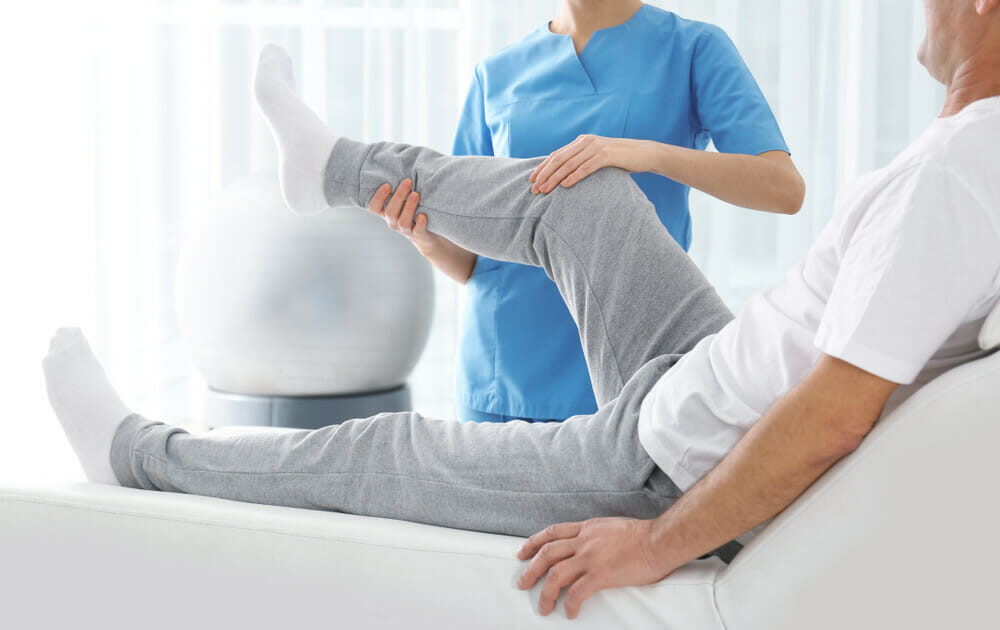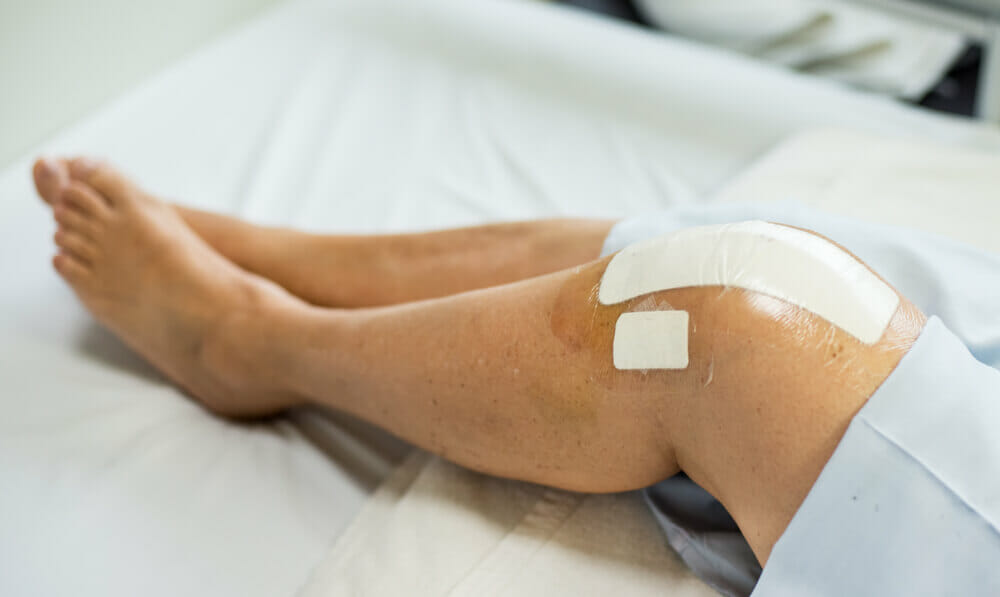
Total knee replacements can be stressful, painful, and a general shake-up in your everyday life. While you can look forward to better days, it doesn’t change the fact that the few months after knee surgery can be a real challenge.
Before you start imagining what life is like around the corner, here is what not to do after knee replacement surgery.
Don’t Bear Too Much Weight On The Affected Knee Too Soon
New knee – new you. But just don’t go overboard too quickly. While it’s tempting to try out your new and improved leg, patience is king and you’ll be rewarded for taking it easy. Giving your leg time to heal and the muscles time to readjust is essential for a full recovery.
Don’t Stop Using A Walking Aide Before You’re Ready
In the weeks after your operation, it’s essential to keep using whatever crutch, brace, or walker your doctor provided you with. If you start walking without appropriate support before your body is ready you run the risk of re-injury. The last thing you want is to end up back in hospital or suffer from compensation injuries.
Don’t Skip Exercises
It’s tempting to go into self-induced comfort mode following surgery. Beware – this is a trap. You’re going to want to keep up regular exercise to ensure your ‘new’ knee is broken in without any issues. That means keeping up the regular exercise. Make sure you follow the routine set by your physiotherapist to ensure your leg is getting the training it needs.
Don’t Skip Your Physio Appointment
This is a big no-no. Physio appointments are essential to trouble-spot and ensure you’re on track to a full recovery. Without an expert eye, you could develop bad habits and slow your recovery down. If you’re not sure where or how to go about getting regular Physio after knee surgery, just check in with our expert team here at Integrity Physio and we’ll be happy to help.

Don’t Do Activities With A High Risk Of Falling
It’s almost a no-brainer, but until you’re fully recovered and feeling confident in your body again, any activities that carry a risk of falling would be considered out of the question.
Some activities to avoid are:
- Climbing ladders
- Walking in dim lighting or at night
- Mopping floors at home
- Sports like roller skating or skateboarding
Sometimes it’s good to check all your carpets are flat on the floor and proceed with caution if the lighting is dim or your eyesight is impaired. It doesn’t just have to be environmental factors either. Make sure you’re getting enough food during the day and make sure to sit down if you’re feeling faint.
Don’t Sit For Too Long, And Don’t Sit In Chairs That Are Too Low Or Soft
If you’re working full time, or find yourself sitting in chairs throughout the day, make sure you’re not doing it for too long. Prolonged sitting on low seats or on the floor can put extreme stress on your leg and even cause re-injury. Choose your seat carefully and opt for straight and upright chairs if you can. If the chair is too low – try to make it higher by placing a pillow on it to make studying up easier.

Avoid Strenuous Activities
If you’re used to playing sports or going to the gym, then be prepared to pick up a book, listen to a podcast, or simply take a nap and relax. Strenuous activities are risky for anyone post surgery – especially if you’ve just had a knee replacement. Here are some activities to avoid:
- Running
- Playing contact sport
- Climbing
- Gym
Don’t Lift Anything Too Heavy
Talk about what not to do after knee replacement! Lifting heavy objects goes straight on our strong avoid list. You should refrain from listing anything that causes strain to your knee joint. So basically anything heavier than a laptop should be kindly brought to you – at least for the first weeks after surgery.
Don’t Wear Shoes That Aren’t Sturdy
Old, poorly constructed, or unbalanced shoes are a bad sign for your newly implanted knee. Shoes play an important role in our ability to balance and maintain normal posture and control. Old or unbalanced shoes (like high-heels) can put your knee at risk of a fall or a twisted ankle. Keep your footwear simple and predictable.
So What Should I Be Doing?
To make life easier post-surgery, make a plan of activities you can do. It’s helpful for yourself, and anyone living with you or caring for you to know what you can and can’t do during your recovery.
Here are some tips to keep your recovery time as short and as effective as possible:
- Don’t place high expectations on yourself
- Keep up regular meals
- Get plenty of rest
- Remember pain is only temporary
If you’re searching for ways to speed up your recovery or want to know more about how to take care of yourself or someone who is in joint replacement rehab, book an appointment with our team of qualified physiotherapists. Get an appointment today by booking online or just give us a call.


